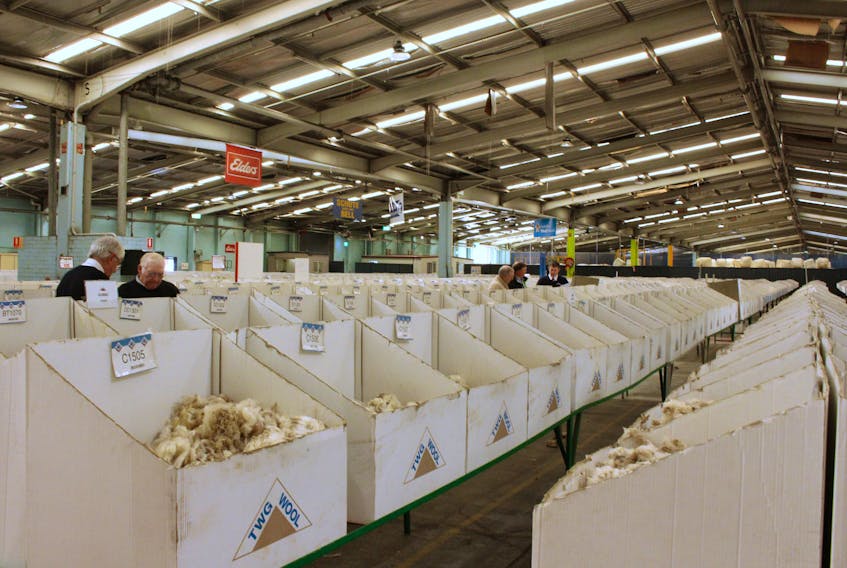By Jonathan Barrett and Mell Chun
YENNORA, Australia (Reuters) - Wool prices in the world's dominant exporter, Australia, are plunging after Chinese mills closed their order books, with buyers citing an escalation in the U.S.-Sino trade war.
The price of wool grades popular with Chinese garment makers fell by up to 7% at auctions across the country on Wednesday, sales reports show. Those same grades - popular with Chinese garment-makers - fell by double-digits a week ago.
Across all grades, the southern Melbourne market suffered its biggest daily fall on Wednesday since 2003.
"Last week fell heavily and it certainly will continue this week; there's just no confidence and no business," said Scott Sealy, a trader at Australian Merino Exports, which exports large quantities to China.
The price action is another sign of the Sino-U.S. trade war spilling over to third parties such as Australia, which controls 90 percent of global fine-wool exports.
Demand, once driven by Italian garment makers, now tends to be set by Chinese wool mills who took more than two-thirds of the industry's A$3.2 billion ($2.2 billion) in exports last financial year, according to government figures.
This week's official wool price results won't be known until the end of the week when results from all major selling centers are in.
But sales reports issued from the three main selling centers - Sydney, Melbourne and Fremantle - from Wednesday's auction are gloomy.
While wool indicator prices suffered their biggest drop at the Melbourne auctions in more than 15 years, more than half of the merino fleece bales for sale in Western Australia's Fremantle auction couldn't find a buyer.
"By day's end, over 55% of the fleece was passed in, on top of the 20% withdrawn prior to sale," an Australian Wool Exchange report said.
The benchmark price for fine Australian merino wool was already down more than 20% from last year's high of $21.16/kg coming into this week's auctions.
PRICE DISMAY
Wool brokers at the Sydney auction on Wednesday were visibly bemused by the bidding, where more than a third of wool bales were passed in, unable to meet reserve prices.
There were also audible groans from farmers sitting in the public viewing area, who have been relying on income generated from fleeces to survive the country's devastating drought.
Wool buyer Peter Rookyard, who has clients in China, pointed to global events.
"This is a different situation that we're in now, our markets are impacted by an external force which is America versus China and we can't solve that problem," said Rookyard, speaking to Reuters at the auction in the western Sydney suburb of Yennora.
"What's happening is their stock is not moving out of China. The domestic market is probably reasonable in China, but export has just come to a grinding halt. They've got stock of greasy wool, wool tops, wool products, and they're going nowhere."
Wool prices were an immediate casualty to the abrupt end of a trade truce, triggered by U.S. President Donald Trump's announcement of additional tariffs on Chinese imports early this month.
The latest round of U.S. tariffs on Chinese imports announced on Aug. 1 will capture clothing and shoes, although the 10% tariff has been delayed until Dec. 15.
Still, the price action has caught many by surprise, given wool production is at record lows, and supply tight, due to the long-running Australian drought.
After hitting record high prices last year, wool demand had tempered before stabilizing mid-year.
Then the trade war reignited.
"We didn't know it was as bad as this," said Ian Sharp, industry veteran and chief auctioneer at Macdonald & Co Woolbrokers.
"China is a very, very important component in our business, and if China is out, the market is very sick."
(Reporting by Jonathan Barrett and Mell Chun in YENNORA; editing by Richard Pullin)









